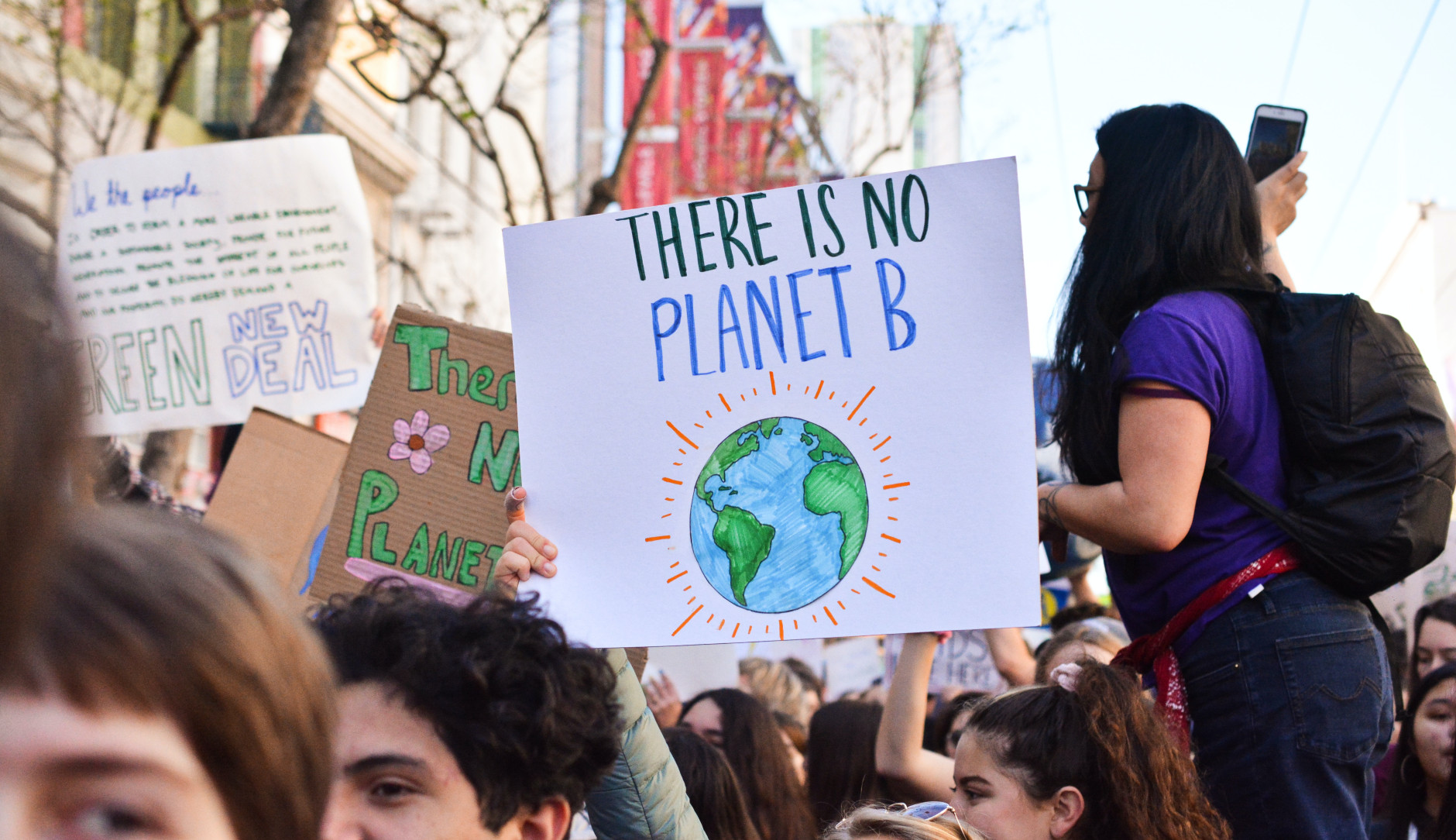Protests work: Climate activism holds the key
Climate activism is no replacement for good regulations and well-written laws. Without it though, change will just not happen at the speed we need.

The recent IPCC synthesis report made it clear: human-made climate change has morphed into a catastrophe at our doorsteps. Yet, according to various sources, the version of the report that reached the general public had already been watered down by lobbyists and did not fully reflect the emergency we find ourselves in.
In a world where an oil company chief is chairing the next COP, and what is undeniable for science becomes all too easily deniable in the service of corporate profits and interests, the glacial pace of political action in the EU stands in stark contrast with the breakneck pace of climate breakdown. In the meantime, increasing polarisation seizes our societies, with climate activists becoming more disruptive by the day and populist parties projecting anti-elite sentiments onto desperately needed green policies with increasing efficiency.
The contrast between these opposing forces is evident all around Europe: in the Netherlands, the disconcertingly exceptional result of the populist party BBB - advocating to stall necessary green reforms in Dutch agriculture - visibly contrasts with the ban to private jets Schiphol’s airport has suggested following the protests from climate activists earlier this year. Another example is the failure of the Berlin referendum for reaching climate neutrality in 2030: only a slim majority (50.9%) voted in favour, but overall the referendum failed to reach the threshold due to a low turnout of 35.8%. Meanwhile, the far-right government of the third EU economy, Italy, is proposing the introduction of a new type of criminal offence that directly targets the actions of climate activists, while steering the country back towards increased reliance on fossil.
All of this exposes an uncomfortable truth: reaching consensus on deep societal changes such as the climate crisis requires time; time we arguably do not have after having squandered decades with climate denialism and inaction.To add injury to insult, even if we achieve a broad political alignment on climate crisis mitigation, evolving a mere set of laws into the indispensable cultural change towards sustainability will require even more time, precisely because we live in beautifully pluralistic and multi-layered democracies.
Are we doomed? We believe not yet. But the right lessons from the recent manifestations of inertia slowing down green transition in the EU need to be drawn.
While already negatively impacting the livelihood of millions in Europe, the climate crisis is not as mobilising as the average progressive politician would think. Despite catastrophic floods, disappearing glaciers, and apocalyptic wildfires being now a regular guest in the headlines, the human-made climate crisis is watched through the warped lenses of talk shows and social media in stories of distanced mayhem and half-understood science. Hence, mobilising sufficient parts of our societies for climate crisis mitigation is the big political challenge of our time, and currently we, the movements and parties committed to a climate neutral future, are failing. Europe needs far more than just the European Green Deal (if we are so bold to claim that we have one). It needs a societal revolution.
The diversity of our political systems and societal structures holds the key – if we could unleash the collective creative tension emerging from the tectonic fault lines of liberal democracies, funnelling it towards climate action. This means among all things: developing modes of climate activism that are as diverse as the societies we want to change. That can and must include nonviolent but disruptive forms of protest, performance, and civil disobedience.
To enable an all encompassing kind of climate activism, many of us may have to become activists ourselves. The climate activism we envision means reaching out a hand and helping to build, to connect, to understand, especially in those places where climate denial and even climate doomism have taken hold. It means working on concrete solutions on the local level to minimise carbon footprints and promote sustainable modes of business; it means understanding climate science and distinguishing genuine innovation from greenwashing fantasies of magic-bullet technologies. It means becoming a multitude of diverse climate activists, tackling climate inertia from as many angles with as many tools as possible.
To be clear, climate activism is no replacement for good regulations and well-written laws. Without it though, change will just not happen at the speed that is dictated by carbon dioxide levels and rising seas. So, the only sensible course of action for political parties is to: Embrace climate activism, work with it, become a platform for it. Together, we may still have a chance.
Francesca Romana D'Antuono - co-President Volt Europa